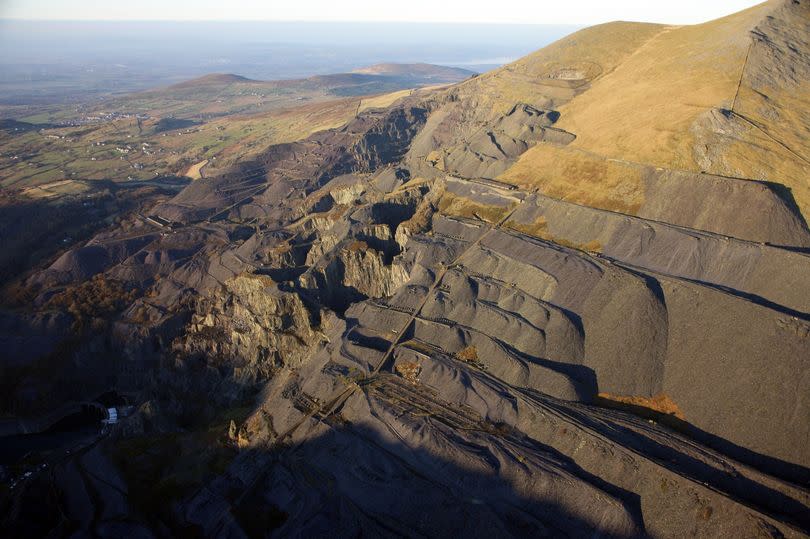Call to end use of 'offensive and immoral' English names for Welsh sites

Campaigners will demand recognition for the estimated 1,500 men killed in the quarries of northwest Wales – and the protection of historic Welsh place names “lost” to modern English equivalents at a unique event on the shores of Llyn Padarn this weekend. Hymns sung by slate quarrymen during lock-outs and strikes will be sung at the event at Llyn Padarn’s sword monument on Sunday, June 23.
There will also be speeches, poetry, songs, choirs and bands to mark the 150th anniversary of the founding of the North Wales Quarrymen’s Union, NorthWalesLive reports . The union, established in 1874 at the Queen’s Hotel, Caernarfon, became embroiled in a series of lock-outs by quarry owners when workers complained of poor pay and working conditions.
Despite the often skilled nature of the work the average life expectancy of quarrymen in places like Blaenau Ffestiniog was just 37 years in 1875. As well as those killed in rock blasts and falls it’s thought thousands more died early from silicosis, a lung disease.
Read next: All the Welsh words Taylor Swift and her crew said in Cardiff during her spectacular Eras Tour gig
Don’t miss: Huge slick of brown matter in the sea off the Welsh coast captured in aerial photograph
A project to record silicosis-related death data, by visiting the graves of thousands of quarrymen, is planned by the organisers of this weekend’s commemoration. They will also step up pressure on Cyngor Gwynedd, Dinorwig owner First Hydro (now ENGIE), and Unesco to reinstate historic names for ponciau and sinciau (galleries and deep holes) at the region’s quarries.
Eilian Williams, whose quarryman father worked at Chwarel Dinorwig, the world’s second-largest slate mine, is among those determined to reclaim their Welsh language heritage. He said: “This quarry is the place of our ancestors with more than two centuries of Welsh history.
“There were plans to landscape the quarry after it closed but this was not felt appropriate as it stood as a monument to the toil and sacrifices of the people who worked there. Left as it was this resulted in climbers moving in to use it for recreation. In 30 or 40 years they have stripped away 200 years of local culture by replacing the names of sites within the quarries.
“At Dinorwig you have silly names from fantasy films like Mordor. Many are offensive and immoral. Some have sexual connotations. They’re insulting and show a lack of respect to the families of the people who worked there.”
Even by 1966, three years before it shut, men were still dying at Dinorwig. Fewer than 10 of Dinorwig’s quarrymen are left alive and most will be at Sunday’s event along with a handful of drivers and yard staff.
Poetry by quarrymen will be read out with attendees also expected from the slate fields of Bethesda, Blaenau Ffestiniog, Dyffryn Nantlle and beyond. Singer Arfon Wyn will perform and offer a prayer for the men who lost their lives.
Also due to attend are actor, writer, and comedian Tudur Owen and Mabon ap Gwynfor, who represents Dwyfor Meirionnydd at the Senedd. An excerpt from T Rowland Hughes’ Chwalfa novel, which chronicled the Great Strike at Penrhyn Quarry between 1900 and 1903, will be read out to mark what was one of the most bitter and long-lasting industrial disputes ever seen in the UK.
Fighting for hikes in pay that was not enough to sustain a family, 2,800 men walked out. Six months later around 400 returned and were forever ostracised. Names of scabs were published in local newspapers and posters appeared in people’s windows reading: “Nid oes Bradwr yn y ty hwn” (“There is no traitor in this house”). So bitter was the divide that for more than a century scab houses in Bethesda were worth less than others.

 Yahoo News
Yahoo News 
